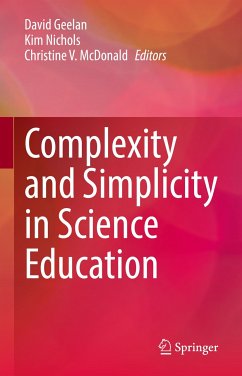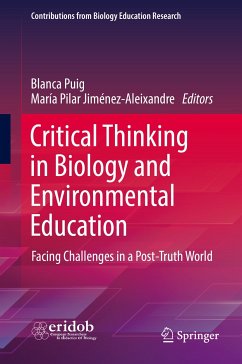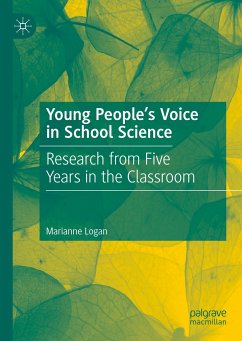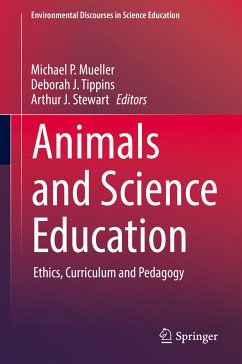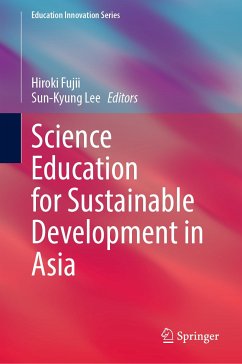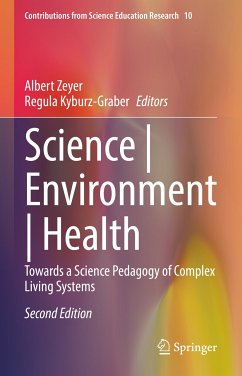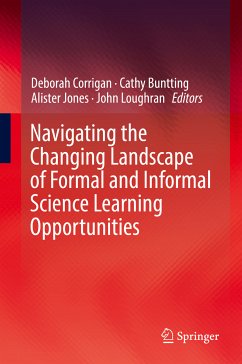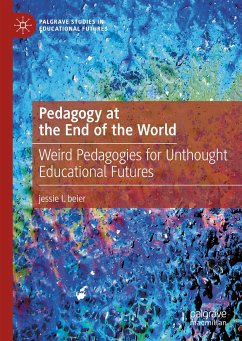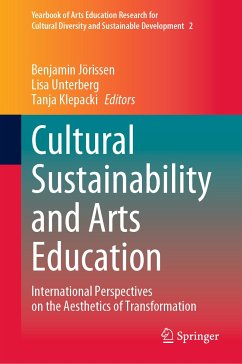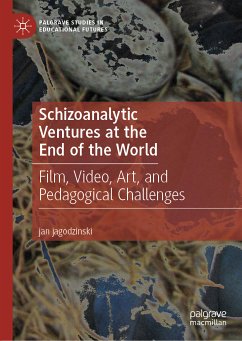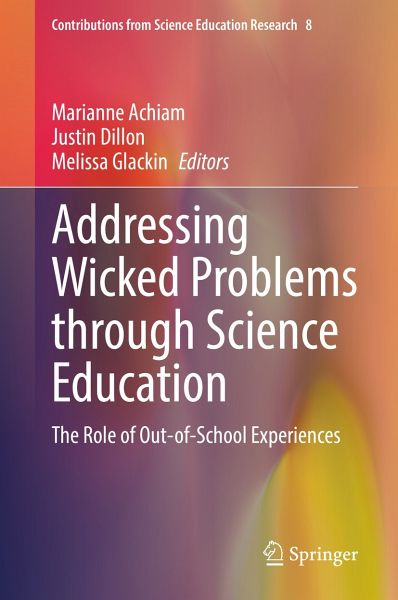
Addressing Wicked Problems through Science Education (eBook, PDF)
The Role of Out-of-School Experiences
Redaktion: Achiam, Marianne; Glackin, Melissa; Dillon, Justin
Versandkostenfrei!
Sofort per Download lieferbar
128,95 €
inkl. MwSt.
Weitere Ausgaben:

PAYBACK Punkte
64 °P sammeln!
This book discusses a number of ways in which out-of-school science education can uniquely engage learners with 'wicked' global problems such as biodiversity loss and climate change. The idea for the volume originated in discussions among members of the ESERA special interest group on "Science Education in Out-of-School contexts". It emerged from these discussions that out-of-school institutions and experiences offer opportunities for critical engagement in wicked problems that go far beyond what is possible solely in the science classroom.The book opens with a principled discussion of the nat...
This book discusses a number of ways in which out-of-school science education can uniquely engage learners with 'wicked' global problems such as biodiversity loss and climate change. The idea for the volume originated in discussions among members of the ESERA special interest group on "Science Education in Out-of-School contexts". It emerged from these discussions that out-of-school institutions and experiences offer opportunities for critical engagement in wicked problems that go far beyond what is possible solely in the science classroom.
The book opens with a principled discussion of the nature of wicked problems and what addressing them involves. This introduction clarifies key terms and ideas to create a coherent backdrop for the rest of the book. Subsequent chapters discuss the challenges of designing educational experiences to address wicked problems, as well as the teaching and learning that takes place. The authors offer perspectives across a range of out-of-school environments such as science centres, natural history museums, botanical gardens, geological sites, and local communities. The book concludes with a chapter that synthesises the findings from the various contributions and points to the messages for educators. Finally, the editors outline an exciting research agenda to build knowledge of education addressing wicked problems. The intended audience of the book includes teachers, educators/facilitators, teacher educators, curriculum developers, and early career researchers as well as established researchers.
The book opens with a principled discussion of the nature of wicked problems and what addressing them involves. This introduction clarifies key terms and ideas to create a coherent backdrop for the rest of the book. Subsequent chapters discuss the challenges of designing educational experiences to address wicked problems, as well as the teaching and learning that takes place. The authors offer perspectives across a range of out-of-school environments such as science centres, natural history museums, botanical gardens, geological sites, and local communities. The book concludes with a chapter that synthesises the findings from the various contributions and points to the messages for educators. Finally, the editors outline an exciting research agenda to build knowledge of education addressing wicked problems. The intended audience of the book includes teachers, educators/facilitators, teacher educators, curriculum developers, and early career researchers as well as established researchers.
Dieser Download kann aus rechtlichen Gründen nur mit Rechnungsadresse in A, B, BG, CY, CZ, D, DK, EW, E, FIN, F, GR, HR, H, IRL, I, LT, L, LR, M, NL, PL, P, R, S, SLO, SK ausgeliefert werden.



